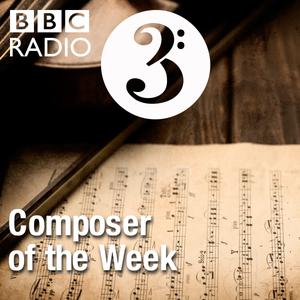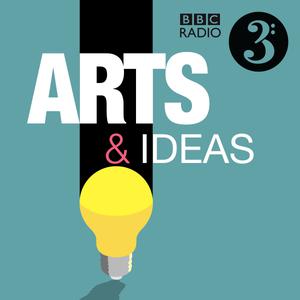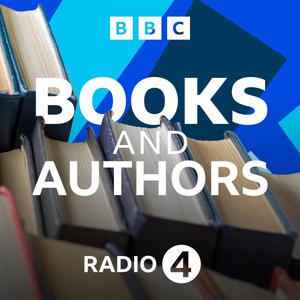
Composer of the Week
BBC Radio 3
BBC Radio 3's Composer Of The Week is a guide to composers and their music. The podcast is compiled from the week's programmes and published on Friday, it is only available in the UK.
- 1 hour 14 minutesMichel Legrand (1932-2019)
Donald Macleod delves into the life and music of Michel Legrand
Michel Legrand is best known for creating the soundtracks for over 200 films, including The Umbrellas of Cherbourg, The Thomas Crown Affair and The Go-Between. But he had an insatiable creative spirit that led him into the world of theatre, ballet, opera and more.
Donald is joined by theatre director and composer Jeremy Sams, who recalls collaborating with Legrand on the Broadway musical Amour - and avoiding going to restaurants with him.
Music Featured:
Les Moulins de Mon Coeur Summer Me, Winter Me Vian: Luna Rossa - Blushing Moon (arr. Legrand) Capua: O Sole Mio (arr. Legrand) Serrapi: Sentir De La Alhambra (arr. Legrand) Falla: Le Danse Du Feu (arr. Legrand) Rodor/Scotto: Sous les ponts de Paris (arr. Legrand) Battaille/Schertzinger: Paris je t’aime d’amour (arr. Legrand) Piaf/Louiguy: La vie en rose (arr. Legrand) Porter: I Love Paris (arr. Legrand) Durand: Mademoiselle de Paris (arr. Legrand) Bernheim: Paris (arr. Legrand) Kosma: Les feuilles mortes (arr. Legrand) Lafarge: La Seine (arr. Legrand) F. Waller: The Jitterbug Waltz (arr. Legrand) Reinhart: Nuages (arr. Legrand) Count Basie: Blue and Sentimental (arr. Legrand) Sampson/Goodman: Stompin' at the Savoy (arr. Legrand) Thelonious Monk: ‘Round Midnight (arr. Legrand) Ellington: Don’t Get Around Much Anymore (arr. Legrand) Beiderbecke: In A Mist (arr. Legrand) Dans le magasin de parapluies Chez Dubourg, le joailier Devant le garage Chanson de Lola Blues Chez le Bougnat You Must Believe in Spring Windmills of Your Mind His Eyes, Her Eyes How do you keep the music playing? Watch what happens What are you doing with the rest of your life? The Go Between (Main Title) The Summer Knows The Hands of Time Overture from The Three Musketeers Songs from Yentl Nobody Knows After the Rain Amore (excepts) Once Upon a Summertime
Michel & Melissa at Work Now and Then Concerto pour violoncelle I Will Wait For You
Presented by Donald Macleod Produced by Alice Mckee for BBC Audio Wales & West
For full track listings, including artist and recording details, and to listen to the pieces featured in full (for 30 days after broadcast) head to the series page for Michel Legrand (1932-2019) https://www.bbc.co.uk/programmes/m0026kjg
And you can delve into the A-Z of all the composers we’ve featured on Composer of the Week here: http://www.bbc.co.uk/programmes/articles/3cjHdZlXwL7W41XGB77X3S0/composers-a-to-z
10 January 2025, 5:00 pm - 1 hour 14 minutesSchubert and Vienna
Donald Macleod explores Vienna in the company of Franz Schubert
Of all Europe’s major cities, perhaps Vienna is the one with the reputation as the most comfortable, the most sophisticated, and the most musical. In fact, has any other city been home to so many great composers as Vienna? Mozart, Beethoven, Haydn, and Salieri all spent their best years working there. Yet none of those starry names was born in the city, none were true Viennese. This week, Donald Macleod explores Vienna through the lens of arguably the greatest home grown composer the city has ever produced – Franz Schubert – a man whose short life spanned a crucial period in Austrian history, a time of crisis and much change. In his company we’ll explore Vienna’s churches and theatres, its parks, coffee houses and taverns, and also glimpse the darker side of the city too – the excesses of Europe’s aristocracy and the all seeing eyes of Vienna’s secret police.
Music Featured:
“Kupelwieser” Waltz in G flat Major, D Anh I/14 Symphony No 9 in C Major “The Great”, D944 (3rd mvt, Scherzo) String Quintet in C Major, D 956 (2nd mvt, Adagio) Beitrag zur fünfzigjährigen Jubelfeier des Herrn von Salieri, D407 Marches Militaires, D733 (No 1 in D Major) Gretchen am Spinnrade, D118 6 Moment Musicaux, Op 94, D780 (No 3 in F min) Mass No 1 in F Major, D105 (Gloria) Grande Marche Funebre, D859 Symphony No 2 in B flat Major, D125 (4th mvt,Presto) Rosamunde, D797 (No 5 ,Entracte No 3 in B flat Major: Andantino) Licht und Liebe, D352 Quartettsatz Lazarus, Act 2 (unfinished) Schwanengesang, D744 4 Impromptus, D899, Op90 (No 3 in G Flat Major) Symphony No 8 in B minor, D759 “Unfinished” (1st mvt, Allegro moderato) Symphony No 5 in B flat Major, D485 (1st mvt, Allegro) Winterreise, D911 (No 24, Der Leiermann) Der Wanderer, D489 Piano Quintet in A Major, D667 “The Trout” (3rd mvt, Scherzo) 38 Waltzes, D145, Op 18 (Nos 6, 8 & 9 ) An Sylvia, D891, Op 6 (No 4) Fantasy in F minor, D940, Op 103 Ave Maria, D839, Op 52, No 6 Mass No 6 in E Flat Major, D950 (Credo) Rosemunde incidental music, D797 (Nos 7-9) Alfonso and Estrella, D732 (Act I, Aria “Sei mir gegrusst, o Sonne!”) An die Musik
Presented by Donald Macleod Produced by Sam Phillips for BBC Audio Wales & West
For full track listings, including artist and recording details, and to listen to the pieces featured in full (for 30 days after broadcast) head to the series page for Schubert and Vienna https://www.bbc.co.uk/programmes/m0026800
And you can delve into the A-Z of all the composers we’ve featured on Composer of the Week here: http://www.bbc.co.uk/programmes/articles/3cjHdZlXwL7W41XGB77X3S0/composers-a-to-z
3 January 2025, 5:00 pm - 1 hour 21 minutesChristmas in Latvia
Donald Macleod visits the city of Riga to experience the seasonal music and Christmas traditions of Latvia – a country overflowing with choral excellence.
Music Featured:
trad.: Kaladô (arr. J. Vaivods) Dubra: Duo Seraphim Dubra: In Nativitate Domini (excerpts) anon.: Res est admirabilis Dubra: Te Deum Pēteris Butāns: In the Beginning was the Word Praulinš: Missa Rigensis: Credo Dubra: Mystery of His Birth Vasks: The Fruits Of Silence anon.: Gaude Maria Dubra: Hail, Queen of Heaven Dubra: Hodie Christus natus est Vasks: Missa for Mixed Choir and String Orchestra, II. Gloria Trad. Budēlīša Ziemassvētki / A Mummer's Christmas (excerpts) Praulinš: Cantate Domino Praulinš: Ziemsvetki Jaunaja Pasaule / Latvian Solstice in the New World Ešenvalds: In the bleak midwinter Ešenvalds: Stars Ešenvalds: Northern Lights Ešenvalds: Rivers of Light Vitols: The Dwarves and the Old Man of the Forest Vasks: Plainscapes (extract) Vasks: Piedzimšana / Birth Trad. Pūtiet guni Praulinš: Mass and Interludes “L'homme armé”: Hosanna in excelsis Ešenvalds: O Emmanuel Vitols: Gaismas Pils / Castle of Light Praulinš: Mass and Interludes “L'homme armé”: Pater sanctificetur Vasks: String Quartet No. 3: I. Moderato Ešenvalds A Christmas Legend / Ziemassvētku leģenda
Presented by Donald Macleod Produced by Chris Taylor for BBC Audio Wales & West
For full track listings, including artist and recording details, and to listen to the pieces featured in full (for 30 days after broadcast) head to the series page for Christmas in Latvia https://www.bbc.co.uk/programmes/m002611k
And you can delve into the A-Z of all the composers we’ve featured on Composer of the Week here: http://www.bbc.co.uk/programmes/articles/3cjHdZlXwL7W41XGB77X3S0/composers-a-to-z
27 December 2024, 5:00 pm - 1 hour 9 minutesA Latin American Christmas
Kate Molleson journeys through the Christmas season in Latin America, introducing the composers who shaped local festivities across centuries and longitudes. From cathedrals to countryside to the deep heat of megacities, we revel in music for worship, friendship, family and fiestas.
Music Featured:
Trad: Esta Noche es Nochebuena Juan Garcia de Zespedes: Convidando esta la noche Gaspar Fernandes: Xicochi Conetzintle; Tleycantimo Choquiliya Gaspar Fernandes: A Belen me llego, Tio Manuel de Zumaya: Celebren publiquen Manuel de Zumaya: El de pedro solamente; Angelicas milicias Trad: Mañanitas guadalupanas Trad: Miren cuantas luces; De larga jornada; La Pinata Jose Alfredo Jimenez: Amarga Navidad; Se va diciembre Arturo Márquez: Conga del Fuego Nuevo Trad: Niño Lindo Vicente Emilio Sojo: Five Pieces from Venezuela Trad: Corre caballito; La mula Aldemaro Romero: Fuga con Pajarillo (from Suite for Strings) Teresa Carreño: Nocturne: Souvenir de mon pays Evencio Castellanos: Avilena Suite (excerpt) Trad: Huachitorito Alberto Ginastera: Villancico Astor Piazzolla: Invierno Porteño (Four Seasons); Milonga del Angel Guastavino: 3 Argentinian Romances: Baile Ariel Ramirez: Navidad Nuestra Luis Aguile: Ven a mi casa esta navidad Osvaldo Pugliese: Navidad João Gilberto: Presente de Natal Antonio Carlos Gomes: Sonata for Strings ‘O burrico de pau’ (4th mvt) Chiquinha Gonzaga: As pombas; Saudade José Maurício Nunes Garcia: Missa Pastoril for Christmas Night Assis Valente: Recadinho de Papai Noel Assis Valente: Boas Festas Antonio Carlos Jobim: Anos Dourados; Wave M. Camargo Guarnieri: Flor de Tremembe Llego la Navidad La Fiesta de Pilito Rafael Hernadez: Triste Navidad Rafael Hernandez: Casitas de la Montana Chuito El de Bayamon: Los tres Santo Reyes Trad: A las Zarandelas Arbolito Amaury Vellay Torregrosa: Villancico Yaucano De la montaña venimos Pasteles y Lechon Canto a Borinquen; Aires de Navidad Sylvia Rexach: Lamento de Navidad José Feliciano: Feliz Navidad
Presented by Kate Molleson Produced by Amelia Parker for BBC Audio Wales & West
For full track listings, including artist and recording details, and to listen to the pieces featured in full (for 30 days after broadcast) head to the series page for A Latin American Christmas https://www.bbc.co.uk/programmes/m0025ll7
And you can delve into the A-Z of all the composers we’ve featured on Composer of the Week here: http://www.bbc.co.uk/programmes/articles/3cjHdZlXwL7W41XGB77X3S0/composers-a-to-z
13 December 2024, 5:00 pm - 1 hour 15 minutesLuise Adolpha Le Beau (1850-1927)
Donald Macleod delves into the life of Luise Adolpha Le Beau
Luise Adolpha Le Beau was a German composer, concert pianist, teacher and music critic. Although her music was performed as far afield as Calcutta and Sydney, her story is one of continual struggle for recognition and respect. Le Beau frequently met opposition to her works and to performance opportunities, Despite these set-backs, Le Beau forged her own path as a composer not only with works for her own instrument, the piano, but also with chamber music, opera, a symphony and many songs. She was determined to succeed, but after her death, without anyone to promote her works on her behalf, Le Beau soon fell into obscurity and was largely forgotten. This week, Donald Macleod is joined by guest Dr Katy Hamilton to shine a light on Le Beau’s music
Music Featured:
Piano Concerto in D minor, Op 37 (excerpt) Fantasiestück, Op 1 No 1 (Drei Klavierstücke) Fünf Lieder, Op 7 (excerpt) Piano Concerto in D minor, Op 37 (Allegro maestoso) Piano Sonata, Op 8 (excerpt) Violin Sonata, Op 10 Mazurka, Op 57 No 3 (Drei Klavierstücke) Polonaise, Op 26 No 3 (Drei Stücke) Theme and Variations, Op 3 Fünf Lieder, Op 11 (excerpt) Piano Trio, Op 15 Concert Overture in F major, Op 23 Eight Preludes, Op 12 No 2 (Munter) Romance, Op 35 Vier Stücke, for cello and piano, Op 24 Fünf Lieder, Op 11 (excerpt) Improvisata for left hand, Op 30 Gavotte, Op 32 Piano Concerto in D minor, Op 37 (excerpt) Eight Preludes, Op 12 No 8 (Mit Grazie) Nachstück, Op 26 No 2 (Drei Stücke) Deutscher Regien, Klavierstück, Op 49 Piano Quartet, Op 28 Drei Lieder, Op 39 Symphony in F major, Op 41 (Allegro con fuoco) Gigue, Op 48 No 3 (Danze Antiche) Vater unser, Op 61 Symphony in F major, Op 41 (Adagio) Cello Sonata, Op 17 Barcarole, Op 59 Abendklänge, Op 63 Symphony in F major, Op 41 (excerpt)
Presented by Donald Macleod Produced by Luke Whitlock for BBC Audio Wales & West
For full track listings, including artist and recording details, and to listen to the pieces featured in full (for 30 days after broadcast) head to the series page for Donald Macleod delves into the life of Luise Adolpha Le Beau (1850-1927) https://www.bbc.co.uk/programmes/m0025cfl
And you can delve into the A-Z of all the composers we’ve featured on Composer of the Week here: http://www.bbc.co.uk/programmes/articles/3cjHdZlXwL7W41XGB77X3S0/composers-a-to-z
6 December 2024, 5:00 pm - 1 hour 8 minutesHenry Purcell (1659-1695)
Donald Macleod explores Henry Purcell’s London
Henry Purcell was the most important English composer of the era, described as the "Orpheus Britannicus" for his ability to combine Baroque counterpoint with dramatic settings of English words. He composed music for the church, the royal court, the theatre and for England’s newly emerging concert scene, with an intelligence and creativity that marked him out as one of the most original composers in all of Europe. More than anything, though, he composed music for London – the city where he lived all of his short life. This week, Donald Macleod explores the city during Purcell’s lifetime and London’s effect on a man who lays claim to being England’s greatest composer. During Purcell’s childhood, it was a city reeling from civil war, the disastrous spread of disease, and the destruction wreaked by the Great Fire. We’ll explore London’s churches, and music Purcell wrote for them, especially Westminster Abbey, where Purcell was organist, the state of London’s theatre scene in Purcell’s day, and the changing demands for music from the various monarchs of the composer’s lifetime.
Music featured:
Fairest Isle from King Arthur Hail Bright Cecilia (Symphony & Closing Chorus “Hail! Bright Cecilia”) Welcome Song from Swifter, Isis, Swifter Flow, Z 336 What hope for us remains now he is gone?, Z 472 Suite from Abdelazer An Evening Hymn ‘Now that the sun hath veiled his light', Z 193 Voluntary in D minor, Z 719 O God, thou art my God, Z 35 Beati Omnes qui timent Dominum, Z 131 My Beloved Spake Te Deum & Jubilate Cold Song ‘What Power art Thou’ (from King Arthur) They that go down to the sea in ships Sighs for our late sovereign Charles the Second, Z 380 ‘If pray’rs and tears’ My heart is inditing Sefauchi's Farewell, Z 656 Love's Goddess Sure Was Blind, Z 331 (VI May Her Blessed Example Chase) Come ye sons of art (excerpt) Timon of Athens, . 632 (Curtain Tune on a Ground) Dido and Aeneas, Act II (excerpt) Theodosius, or the Force of Love (Overture; Prepare the Rites Begin) King Arthur (excerpt) The Fairy Queen (excerpt) Indian Queen, Act 4 ‘They tell us that you mighty powers above’ When I am laid in earth from Dido and Aeneas Trumpet Sonata in D Major, Z 850 Burial Service, Z 58c ‘From Rosy Bow’rs’ from Don Quixote Oedipus: incidental music, Z 583 (No 2, Music for a While (Arr B. Britten)
Presented by Donald Macleod Produced by Sam Phillips for BBC Audio Wales & West
For full track listings, including artist and recording details, and to listen to the pieces featured in full (for 30 days after broadcast) head to the series page for Henry Purcell (1659-1695) https://www.bbc.co.uk/programmes/m0024x77
And you can delve into the A-Z of all the composers we’ve featured on Composer of the Week here: http://www.bbc.co.uk/programmes/articles/3cjHdZlXwL7W41XGB77X3S0/composers-a-to-z
22 November 2024, 5:00 pm - 1 hour 5 minutesBallroom Blockbusters
Donald Macleod takes a whirl around the world through the music of ballroom dancing. With the help of Hilary French, author of Ballroom: A People’s History of Dancing, Donald waltzes across Viennese ballrooms, foxtrots through New York clubs, tries the tango in the arrabales of Buenos Aires, sambas on the streets of Salvador and finally cha-cha-cha’s his way to Havana.
Presented by Donald Macleod Produced by Alice McKee for BBC Audio Wales & West
For full track listings, including artist and recording details, and to listen to the pieces featured in full (for 30 days after broadcast) head to the series page for Ballroom Blockbusters https://www.bbc.co.uk/programmes/m0024dnd
And you can delve into the A-Z of all the composers we’ve featured on Composer of the Week here: http://www.bbc.co.uk/programmes/articles/3cjHdZlXwL7W41XGB77X3S0/composers-a-to-z
15 November 2024, 5:00 pm - 1 hour 30 minutesBud Powell (1924-1966)
Kate Molleson explores the life and work of the amazing Bud Powell
This week Kate Molleson explores the life and work of a jazz giant in his centenary year: the amazing Bud Powell, in the company of Powell’s biographer Peter Pullman. Focusing on Bud Powell as a performer, prioritising his own compositions but also appreciating the art of improvisation as spontaneous composition.
Bud Powell was born in 1924 and grew up in Harlem, against the backdrop of the Harlem Renaissance. He was a gifted pianist from a young age and became a pioneer of bebop. But he was a troubled soul and the great paradox of Bud Powell is how there could be such joy and expression in his music while his life was so painful.
Music Featured:
Bouncing with Bud (from The Amazing Bud Powell) Oblivion (from The Genius of Bud Powell) Strictly Confidential (from Jazz Giant) Floogie Boo (from Cootie Williams and his Orchestra 1941-1944) Do Some War Work, Baby (from Cootie Williams and his Orchestra 1941-1944) Off Minor (from Bud Powell Trio) Dexter Rides Again (from Dexter Rides Again) Mad Bebop (from JJ Johnson’s Jazz Quintet) Buzzy (from Charlie Parker, the Complete Savoy and Dial Master Takes) Bud’s Bubble (from Bud Powell Trio) I Should Care (from Bud Powell Trio) Tempus Fugit (from Jazz Giant) Celia (from Jazz Giant) Un Poco Loco (from the Amazing Bud Powell) Over the Rainbow (from the Amazing Bud Powell) A Night in Tunisia (from the Amazing Bud Powell) Dance of the Infidels (from the Amazing Bud Powell) So Sorry Please (from Jazz Giant) Glass Enclosure (from the Amazing Bud Powell, vol 2) Lullaby of Birdland (from Inner Fires) Sure Thing (from Inner Fires) Parisian Thoroughfare (from the Genius of Bud Powell) Polka Dots and Moonbeams (from the Amazing Bud Powell, vol 2) Hallelujah (from Hot House: The Complete Jazz at Massey Hall Recordings) Hot House (from Hot House: The Complete Jazz at Massey Hall Recordings) Willow Grove (from Piano Interpretations by Bud Powell) Nice Work If You Can Get It (from Bud Powell Trio) Elegy (from Blues in the Closet) Blues for Bessie (from Strictly Powell) Ornithology (from the Amazing Bud Powell) Bud on Bach (from the Amazing Bud Powell, vol 3) Buster Rides Again (from the Amazing Bud Powell, vol 4) John’s Abbey (from the Amazing Bud Powell, vol 4) Cleopatra’s Dream (from The Scene Changes) Getting There (from The Scene Changes) Buttercup (from Bud Powell’s Moods) Round Midnight (from Bud Powell: Live at the Blue Note Café Paris 1961) How High the Moon / Ornithology (from Live in Lausanne 1962) Broadway (from Our Man in Paris) I’ll Remember April (from Mingus at Antibes) I Can’t Get Started (from Bud Powell in Paris) Blues for Bouffemont (from Blues for Bouffemont) All God’s Chillun Got Rhythm (from Jazz Giant) Hallucinations (from The Return of Bud Powell) If I Loved You (from The Return of Bud Powell) Thelonius (from A Portrait of Thelonius) Like Someone in Love (from Ups and Downs) Bouncing with Bud (Keith Jarrett/Gary Peacock/Jack DeJohnette, from After the Fall) Dusk in Sandi (Chick Corea, from Remembering Bud Powell) Wail (from the Amazing Bud Powell)
Presented by Kate Molleson Produced by Martin Williams for BBC Audio Wales & West
For full track listings, including artist and recording details, and to listen to the pieces featured in full (for 30 days after broadcast) head to the series page for Bud Powell (1924-1966) https://www.bbc.co.uk/programmes/m0024m2z
And you can delve into the A-Z of all the composers we’ve featured on Composer of the Week here: http://www.bbc.co.uk/programmes/articles/3cjHdZlXwL7W41XGB77X3S0/composers-a-to-z
15 November 2024, 5:00 pm - 1 hour 14 minutesFranz Liszt (1811-1886)
Donald Macleod uncovers key aspects of Liszt’s soul and identity
Franz Liszt was the original musical heartthrob - the most photographed man of the 19th century, who left a legacy of more than 700 compositions and in the course of his career made well over 1000 concert appearances. With his electrifying talent at the keyboard, he transformed the status of musician from servant to demigod. But he was also a man of complex character, who wore many masks and repeatedly reinvented himself. This week, Donald Macleod uncovers key slices of Liszt’s soul and identity.
Music Featured:
Prelude (No 1 from 12 Transcendental studies) Grand galop chromatique “Un sospiro” (from 3 Etudes de concert, S144 No 3) “La Campanella” (from Grandes Etudes de Paganini, S141 No 3) Mephisto Waltz No 1 Piano Concerto No 1 in E flat major, S124 Gnomenreigen En rêve Romance oubliée, S132 Premiere année de pèlerinage, S160: Suisse (excerpt) Die Lorelei Les Preludes Liebestraum No 3 in A flat major Salve Regina Dante Symphony S109 (iii. Magnificat) Les morts: Oraison Legendes, S175: St Francis of Assisi preaching to the birds 10 Harmonies poetiques et religieuses: Benediction de dieu dans la solitude (excerpt) Christus, Part 3: Resurrexit Mephisto Waltz No 4 Der Doppelgänger (after Schubert’s Schwanengesang) Grandes études de Paganini, No 5 “La Chasse”, S141 La lugubre gondola II Funeral Odes, No 3 “Le triomphe funebre du Tasse” Consolation No 1 in E major, S172 Kennst du das Land Rakoczy March (from Hungarian Rhapsody No 15) Enfant, si j’etais roi Im Rhein, im schoenen Strome Isten Veled! Troisieme année de pèlerinage: Les jeux d’eau sur la villa d’Este Wiegenlied Hungarian Rhapsody No 2 (orch. Doppler)
Presented by Donald Macleod Produced by Amelia Parker for BBC Audio Wales & West
For full track listings, including artist and recording details, and to listen to the pieces featured in full (for 30 days after broadcast) head to the series page for Franz Liszt (1811-1886) https://www.bbc.co.uk/programmes/m002454z
And you can delve into the A-Z of all the composers we’ve featured on Composer of the Week here: http://www.bbc.co.uk/programmes/articles/3cjHdZlXwL7W41XGB77X3S0/composers-a-to-z
1 November 2024, 5:00 pm - 1 hour 16 minutesMargaret Bonds (1913-1972)
Donald Macleod explores the life and music of African American composer Margaret Bonds
This week, Donald Macleod is joined by musicologist and pianist Dr Samantha Ege to delve into the life and music of African American pioneer composer, Margaret Bonds (1913-1972). Bonds was one of the most important composers and pianists of her time. She wrote several dozens of art songs, arranged many traditional spirituals, and composed large-scale cantatas. From her native Chicago where she was the first black performer to play with the Symphony Orchestra to the buzzing stages of New York where she set poetic gems to music, and at a time of racial discrimination and fight for civil rights, her story is one of determination, friendship, and absolute dedication to music-making. As such the programme does include some language of the period.
Music Featured:
Joy Trad, arr Bonds: Little David Play on Your Harp The Pasture Spiritual Suite; No 1, The Valley of the Bones To a Brown Dead Girl Trad, arr Bonds: Lord, I Just Can’t Keep from Cryin’ Florence Price: Fantasie Nègre No 1 in E minor Flamenco Tangamerican Simon Bore the Cross Trad, arr Bonds: Didn’t It Rain The Negro Speaks of Rivers Three Dream Portraits Trad, arr Bonds: Ezek’el Saw the Wheel Four Songs Trad, arr Bonds: Peter, Go Ring dem Bells Spiritual Suite; No 2, The Bells The Ballad of the Brown King Trad, arr Bonds: Joshua Fit da Battle of Jericho (arr for voice and chamber ensemble by P. Spray) Trad, arr Bonds: I Wish I Knew How It Would Feel to Be Free Trad, arr Bonds: He’s Got the Whole World in His Hands Trad: Wade in the Water Spiritual Suite; No 3, Troubled Water Montgomery Variations Fugal Dance When the Dove Enters In Songs of the Seasons Credo Trad, arr Bonds: Hold On (arr for voice and chamber ensemble by P. Spray) Simon Bore the Cross (mvt VIII)
Presented by Donald Macleod Produced by Julien Rosa for BBC Audio Wales & West
For full track listings, including artist and recording details, and to listen to the pieces featured in full (for 30 days after broadcast) head to the series page for Franz Liszt (1811-1886) https://www.bbc.co.uk/programmes/m0023y4n
And you can delve into the A-Z of all the composers we’ve featured on Composer of the Week here: http://www.bbc.co.uk/programmes/articles/3cjHdZlXwL7W41XGB77X3S0/composers-a-to-z
25 October 2024, 4:00 pm - 1 hour 13 minutesDorothy Howell (1898-1982)
Donald Macleod and Leah Broad survey the life and work of British composer Dorothy Howell
This week Donald Macleod is joined by the award-winning author Leah Broad to explore the story of the British composer Dorothy Howell, who shot to fame aged 21 after the triumphant premiere of her orchestral work ‘Lamia’ at the Proms. By the mid-1920s she was regarded as one of the leading women composers of the day, performing in prestigious venues across the UK and regularly appearing on radio programmes in the earliest days of broadcasting. But she faced challenges from the 1930s onwards that left her disillusioned, and by the end of her life she wanted to destroy all but a handful of her works. Luckily family intervened, but even so Howell’s music almost disappeared from view - until recently.
Music Featured:
Spindrift Humoresque for Orchestra Sonata for violin and piano (1st mvt) Two Frogs Five Studies for piano Boat Song for piano Lamia Five Studies Rosalind The Little Round House, The Bears Koong Shee Phantasy for violin and piano The Tortoiseshell Cat Pot Pourri My White Lady The Moorings If you will come to Corte Piano Concerto in D minor Mazurka Two Pieces for Muted Strings Puppydog’s Tales Prelude 1 in F minor Prelude 2 in C Prelude 3 in A flat Recuerdos Preciosos No 1 and 2 The Rock Overture Sonata for violin and piano (2nd & 3rd mvts) To Sine in Winter Sonata for piano Three Divertissements
Presented by Donald Macleod Produced by Megan Jones for BBC Audio Wales & West
For full track listings, including artist and recording details, and to listen to the pieces featured in full (for 30 days after broadcast) head to the series page for Dorothy Howell (1898-1982) https://www.bbc.co.uk/programmes/m0023f35
And you can delve into the A-Z of all the composers we’ve featured on Composer of the Week here: http://www.bbc.co.uk/programmes/articles/3cjHdZlXwL7W41XGB77X3S0/composers-a-to-z
11 October 2024, 4:00 pm - More Episodes? Get the App
Your feedback is valuable to us. Should you encounter any bugs, glitches, lack of functionality or other problems, please email us on [email protected] or join Moon.FM Telegram Group where you can talk directly to the dev team who are happy to answer any queries.
 Arts & Ideas
Arts & Ideas
 This Cultural Life
This Cultural Life
 Great Lives
Great Lives
 A Point of View
A Point of View
 Books and Authors
Books and Authors
 Private Passions
Private Passions